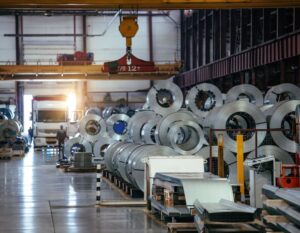
Ways That Different Industries Are Promoting Sustainability
Industries across the globe are recognizing the importance of sustainability and are taking steps to integrate environmentally friendly practices into their operations. This shift toward sustainability is not only beneficial for our planet, but it also helps companies build a positive brand image and attract a more conscious customer base.
Explore the innovative ways that different various industries are promoting sustainability and setting new standards for responsible business.
Manufacturing
The manufacturing industry specializes in producing goods through the use of labor, machinery, tools, and biological or chemical processing or formulation. It involves the conversion of raw materials, sub-assemblies, and components into finished products. This industry is a critical component of any economy, contributing significantly to economic growth and employment.
Waste is a natural byproduct of the manufacturing of goods, regardless of the processes that are used. That is why many companies in this industry are finding ways to improve sustainability in metalworking and product creation. The industry is continually evolving, with advancements in technology and process efficiency uncovering new ways for this industry to promote sustainability.
Agriculture
Agriculture is the cultivation of plants and the rearing of animals for food, fiber, medicinal plants, and other products used to sustain and enhance human life. It plays a pivotal role in the global economy, providing the primary source of food and income for billions of people.
Sustainable agriculture practices range from subsistence farming, in which farmers grow just enough food to meet their needs, thereby reducing waste, to integrated pest management practices that seek out alternative ways to deter pests without the use of harmful chemicals and pesticides.
Textiles
The textile industry involves the design, production, and distribution of yarn, cloth, and clothing. The raw material may be natural, such as cotton or wool, or synthetic, like polyester or nylon. Textiles are used in a myriad of products, from clothing and home furnishings to industrial products like geotextiles.
The textile industry has a significant environmental footprint, and there is a growing movement toward more sustainable practices in this sector, including the use of organic materials, more widespread recycling programs, and waste reduction strategies.
Construction
Construction involves the process of erecting buildings or infrastructure. It differs from manufacturing in that manufacturing typically involves mass production of similar items without a designated purchaser, while construction is typically done on location for a known client. Construction starts with planning, design, and financing and continues until the project is built and ready for use.
Sustainability is a growing focus in the construction industry, with an emphasis on green building practices and the efficient use of resources. Sustainability efforts in this sector also overlap with eco-friendly practices in the waste management industry, as construction projects generate a significant amount of waste that must be disposed of in an environmentally friendly manner.